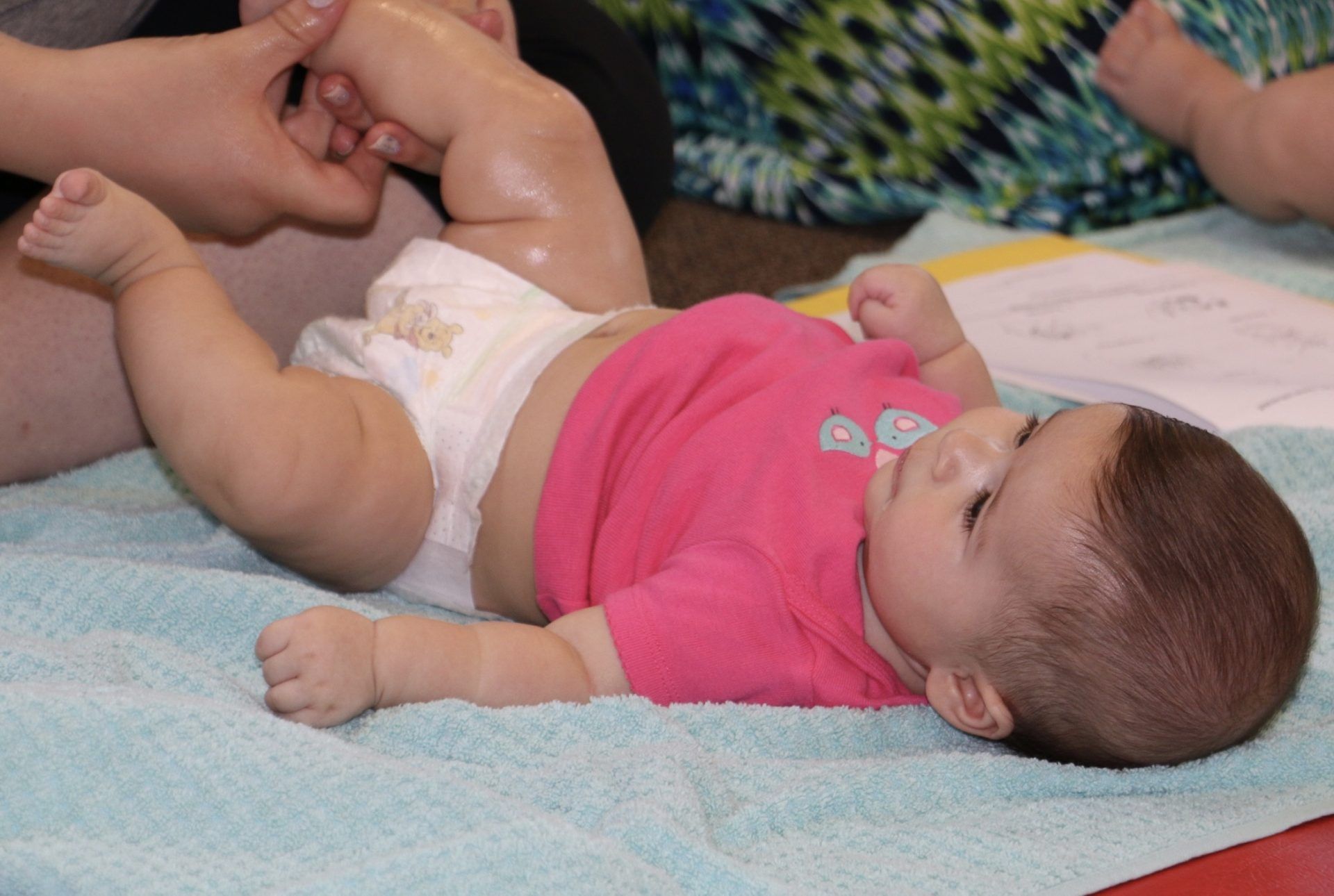Infant Massage
Benefits of Infant Massage
Massage has benefits at any age, but for babies it can be extra helpful! The best time to massage your baby is when they are awake, but alert. It doesn’t have to last long to get these benefits. You don’t need much, a comfortable room, something soft to place baby on, and some oil (here are some suggestions to pick out what works for you)!
Improved development
Massage can improve circulation, improve muscle tone, and provide increased awareness of a baby’s body parts. It’s also a great time to talk to your baby which will help their speech and language.
Improved sleep
Daily massage can help babies build tolerance to handling and different input. This can help them learn to calm and relax their bodies on their own which can help them The relaxation linked to massage can help baby fall asleep on their own.
Improved digestion
Babies occasionally experience difficulties with pooping or have increased gas. There are specific massage techniques that can help move gas bubbles and poop along.
Parent and child bonding
Massage is a great way for parents, caregivers, and grandparents to bond with their baby. Babies respond differently to different strokes. It’s a great way for parents to pick up on the babies cues. It’s also a great excuse to get some 1:1 quiet time with baby. What a great way to break up that witching hour!
Improved body awareness
Body awareness helps babies start interacting with their environment. They get input when they recieve massage. This can help improve their awareness of where their body is in their environment. If your baby has a preference for using one side more than the other it can be a great way to help them be more aware of the side they don’t use as much
If you would like to learn how to massage your baby , BDI Playhouse offers Infant Massage classes in clinic and virtually. Trained therapists will help you find the best way to ready your baby’s unique cues to get the most out of massage!
Written By: Andrea Turnell, PT, DPT



